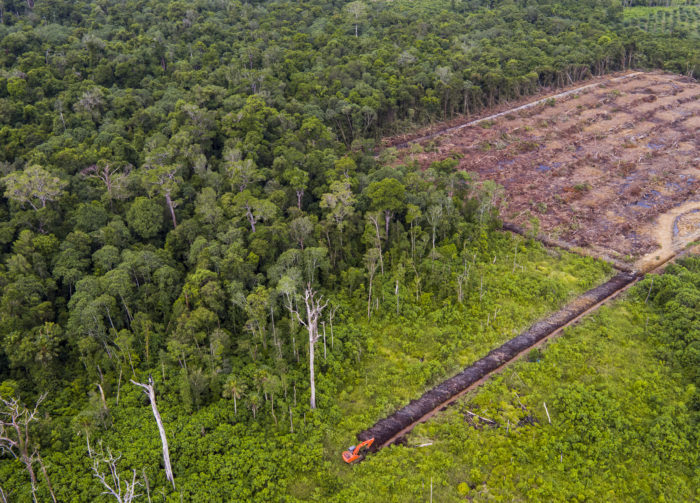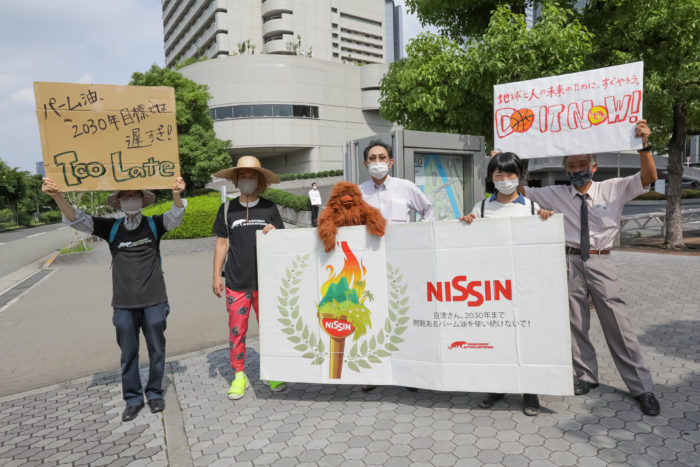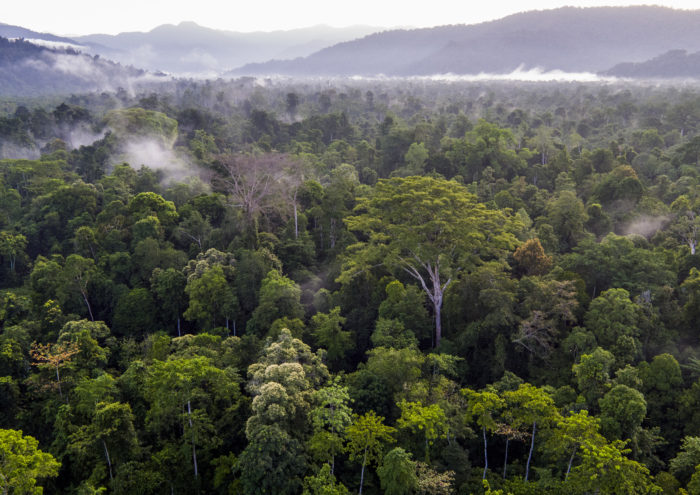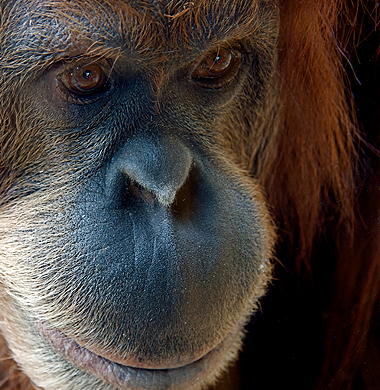New video implores Nissin Foods to take action now!
Deep within the last of the lowland rainforests of the Leuser Ecosystem in Indonesia is the “orangutan capital of the world.” This lush tropical forest is also home to Sumatran elephants, tigers and rhinos as well as a vital source of water for local communities. But this critical rainforest habitat is in danger, and some of Japan’s largest food manufacturing companies are to blame. One of the worst performing culprits is Nissin Foods––the inventor of instant noodles and sponsor of the Tokyo 2020 Olympics––that has been repeatedly called upon to address its role in driving deforestation for palm oil in the Leuser Ecosystem.
Why? Because the products manufactured by Nissin Foods in Japan, the U.S., and across the world may have been produced at the expense of the Leuser Ecosystem’s lowland rainforests and the protected wildlife reserves within its boundaries.

Palm oil produced at the expense of rainforests in the Leuser Ecosystem has been linked to major suppliers of Nissin Foods
For years, consumers have been calling on Nissin Foods to take action to address its role in driving deforestation and human rights abuses through its use of Conflict Palm Oil. The message has been delivered to the CEO of Nissin Foods and its shareholders at a recent Annual General Meeting in Japan and at its facilities in the US since 2015. During the countdown to the Olympics, RAN and consumers have also demanded that Nissin Foods plays its part in making Tokyo 2020 a deforestation free olympics.

RAN’s Japan representatives delivered a message to Nissin Foods that its 2030 deadline for implementing its global palm oil policy is too late during its recent AGM in Osaka Japan
Nissin Foods was also named as one of the worst performers in the Keep Forests Standing scorecard. The company scored an F grade due to weaknesses in its published policies and the implementation and verification systems used to prevent further human rights violations and deforestation in its palm oil, pulp and other forest-risk commodity supply chains. Nissin Foods is also lagging behind its peers as it has refused to publish details of its palm oil suppliers.
In response to this growing outcry the instant noodle giant has promised to source so-called ‘sustainably produced’ palm oil, but set 2030 as the target year for achieving the implementation of its policy. Most recently, Nissin Foods announced a new target of 2025 for its instant noodle products sold in Japan. Both of these target dates are too late as the destruction of rainforests continues now!
But there’s still hope. Rainforest Action Network has published a new video to educate consumers in Japan of the impact of Nissin’s Foods palm oil supply chain on this priceless ecosystem. The video aims to implore Nissin Foods to improve its policies and take action to stop driving the destruction of the orangutan capital of the world now, before it ‘s too late.

Vast areas of lowland rainforests remain at risk in the leuser Ecosystem. Nissin Foods can take action to stop the expansion of palm oil into these critical habitat areas for the Sumatran orangutans, elephants, rhinos and tigers. Credit: Paul Hilton/RAN
Join us in demanding an end to deforestation for instant noodles by sharing this video today. You can share this video along with the following message to inspire consumers in Japan to call on Nissin Foods to do more to protect the Leuser Ecosystem from Conflict Palm Oil.
以下のキャンペーンに賛同をお願いします>>
#日清2030年では遅すぎる












